“I’m A Doctor on a Spiritual Journey” – The Role of Spirituality in Healthcare
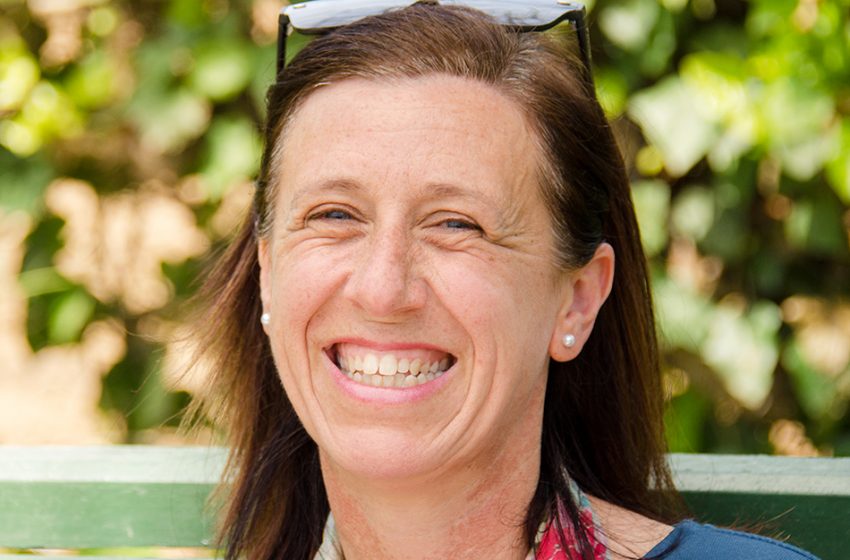
Dr Cynthia Sammut. Photo: Christina Gatt
Dr Cynthia Sammut is a medical doctor and homeopath. Her holistic approach with patients led her to spirituality. Dr Cynthia also has a Master’s Degree in Spirituality and is now at a stage where she is integrating her studies. In this article she describes the role of spirituality in healthcare from her own experience and from studies.
“Through my experience with patients and my own personal journey of faith I am appreciating the importance of spirituality in healthcare. I am discovering how much it can help in the physical, and even more so in the deeper emotional and spiritual healing of the person”, she says.
“Through my work, I observed that patients who are spiritual and have an active faith can deal better with their health problems. Studies also show that spirituality improves health outcomes.” Dr Cynthia explains.
A definition of spirituality
Dr Cynthia comes from a Catholic background, yet she has been exposed to different kinds of spirituality. Her studies in spirituality included looking at different ways in which spirituality is expressed by different cultures and individuals. Moreover, a number of persons whom she treated followed other religions, were members of other Christian denominations or had non-theistic views of spirituality.
She describes how she perceives spirituality to be the third dimension of the person: “To me spirituality is like watching a 3D movie. If you look at life in a two dimensional way – only through the physical and emotional/mental aspect – life-events may seem unclear. Once you put on the ‘glasses of spirituality’, life takes on a different meaning. So, life-events can then be seen to have a purpose.” She describes her journey thus, “As a medical doctor I studied mainly the physical aspect of the human person. Whilst practicing homeopathy I became aware of the mental and emotional aspect of the person. Eventually, I also became aware that those patients who were really interested in getting better and not just wanting to remove symptoms, were touching this third dimension – spirituality.”
Spirituality can be expressed through religion but not necessarily so. It also allows us to see our life, including our health, in a more complete, and holistic way. Consequently, illness can be seen in a different light. Hence, illness no longer stops us from living but can help us to live with more integrity, even whilst creating limitations in some way.
The spiritual way of healing
Dr Cynthia believes that when one integrates spirituality in the process of healing, the person learns to live with the disease in a healthy way. “This reminds me of St Paul who spoke of his thorn. He asked God to remove the thorn several times, but it was never removed (cf. 2 Cor 12:7-10). There are various theories about this ‘thorn’. Some scholars think that it was a physical ailment. Others suggest that it referred to a person who was antagonising him. Whatever the thorn was, because of its effect, it was actually helping St. Paul to live with integrity. Another effect was that it reminded him of his limitations.”
“Sometimes a person is going through an illness and touches rock bottom. Due to that situation the person may face the reality that some dreams can’t come true. However, in that space, the person can also come in touch with meet their own depth.
Dr Cynthia explains how, in her experience with patients, she found that spirituality goes beyond religion and touches the person very deeply. “This is where spirituality and health meet. I see this especially in cancer patients. When someone is battling with cancer, sometimes families are brought together not just in the physical presence, but also through the sharing of spiritual experiences. In the next section, Dr Cynthia relates some incidents when patients or other acquaintances had a spiritual experience which helped them cope better with their situation.
Patients’ experiences of the role of spirituality in healthcare
The mum who lost her young son to cancer
“I can remember the experience of a mother whose young child died of cancer after a long battle with his illness. When I met the mother after her son’s death, she said, “We managed to help the child through his journey, to reach the place where he has to be.” It was an enigmatic phrase which, on its own, made no sense. But within the context of faith, this was an expression of a mother who had found a reassuring space despite such a painful experience. Although the child had passed away, the parents were at peace because they felt that what they had done had made their son’s short life meaningful.
A lady suffering from a chronic condition
“A lady who suffered from a chronic condition was desperately looking for some remedy. Her mother had also suffered from the same condition. So this lady didn’t want to go through the suffering herself. The condition persisted despite of a lot of different approaches and treatment. During one of the consultations we touched the topic of spirituality. This prompted her to start the Ignatian Spiritual Exercises.
A few years later, I met this lady again. She recounted her experience of the spiritual exercises and remarked on how it had changed her life. She also said that, although she was still suffering from the chronic condition, the peace which she had found through the spiritual journey of the exercises had relieved her of the anxiety about the illness. Consequently it did not take up so much of her time and thoughts anymore.
Universality of spirituality and sacred spaces
“A French tourist, who favoured the ideology of the Enlightenment movement and above all was not religious, was moved by the peace which she felt while visiting the Carmelite church in Mdina. Similarly, another woman, who was a non-practising Catholic, also shared how in moments of distress she still went to the church because there she found solace. In the church she felt safe to cry and express her anger and tears.”
When all hope is lost
Dr Cynthia speaks about a moving experience while visiting a patient with incurable cancer. This patient had asked for psychological and spiritual support. Since the person was too ill to communicate, all that Dr Cynthia could do was to sit by the bed and hold the patient’s hand. “The patient seemed to find comfort from this silent presence. After a while, the patient said a sentence reflecting on the way she had lived her spirituality during her life. This seemed to help her find peace.
This experience was a valuable moment for Dr Cynthia. Above all, it taught her the value of being present for the patient. Even when there seems to be nothing else one can do to alleviate the pain and suffering, being present can help the healing in other ways.
How can a health carer contribute spiritually in the patient’s life?
Dr Cynthia speaks about the work being carried out to integrate spiritual care in healthcare. Tools have been developed to help the health carers assess the spirituality of the person and to assess the health carers’ competences in this area during their training. However, Dr Cynthia also says: “I believe that for a health carer to be able to address the spiritual dimension with the patient, they have to be on a spiritual journey themselves. In my experience, patients are more likely to speak about their spiritual needs if they feel that the health carer is in touch with their own spirituality. I am on a spiritual journey. And when I meet people who are also on a journey spiritually, we connect.
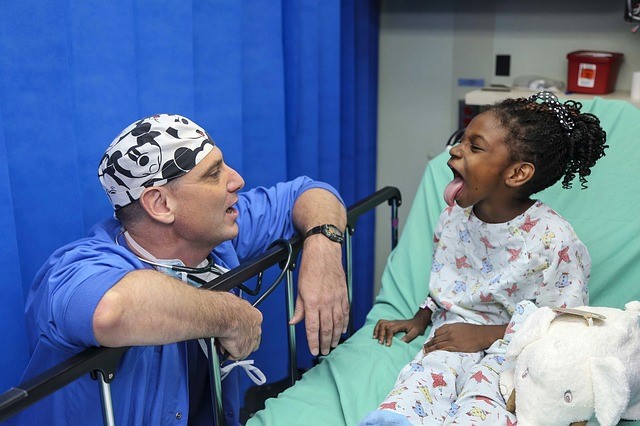
If the patient is not aware of their own spirituality, the doctor can help to bring it into the picture. Sometimes this helps the patient to understand what might be underlying the illness, and to find ways to change and improve their health. However, not all patients are ready to talk about their spirituality or to connect with it. So the health carer has to be sensitive to the needs of each patient and to respect them.”
What’s special about being a health carer with a spiritual touch
“What I consider to be so precious and special about adding the spiritual dimension to healthcare is ‘the being with’ the person. As a health carer, being aware that the patient is much more than that physical or mental ailment with which they are presenting, is important. You become aware that there is more to each patient than their disease. There is context which includes their relations and environment, but also that the patient is a spiritual being.”
Embarking on a health care profession
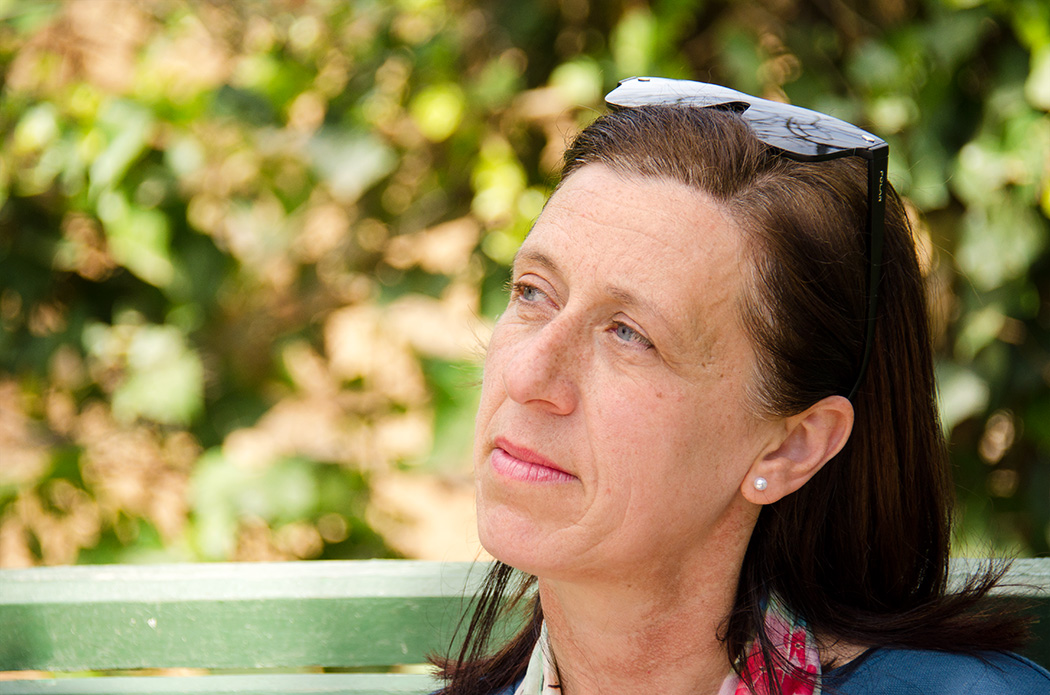
Dr Cynthia believes that remembering the patient is a human being, is crucial for those embarking on a profession in healthcare. “With the advancement of technology in healthcare we are getting more focused on the illness and the diagnosis. Consequently, it is easy to forget that the patient is much more than that illness. The health carer has to keep in mind that patients come from a context. This context includes a family, a community, a society. Certainly, keeping in mind the person within a larger context, helps the carer to acknowledge the spiritual aspect. It makes them sensitive to deeper issues which the person might be expressing through physical ailments or enduring during the illness.
Dr Cynthia’s journey in spirituality
“My medical training, personal journey and studies in spirituality are now coming together. I am following a course entitled The Spiritual Dimension To Healthcare. This course is helping me to bring together these two aspects of the human person. It is like having two eyes. One eye sees spirituality whilst the other eye sees the physical body/health. Consequently, through this course, I am focusing two images and gaining stereoscopic vision! When we use the vision from our two eyes we gain true depth perception. Similarly, this course is helping me to gain a deeper perception into health and healthcare. This leads to better assessment and management of each patient. Above all, it helps patients to live their life to their full potential as human beings regardless of their level of health or physical ability.
Read more on the role of spirituality in healthcare:
– Addiss David G., Spiritual Themes and Challenges in Global Health, Journal of Medical Humanities, September 2018, Vol 39(3), 337-348. https://link.springer.com/article/10.1007%2Fs10912-015-9378-9
– Attard, Josephine; Baldacchino, Donia; Camilleri, L. Nurses’ and midwives’ Acquisition of competency in spiritual care: A focus on education. Nurse Education Today. December 2014, Vol.34(12), 1460-1466. doi: 10.1016/j.nedt.2014.04.015
– Baldacchino, Donia. Spiritual Care: Being in Doing. Preca Library, Malta 2010. ISBN 978-99909-54-58-6
– Chase, Benna. A Model Combining Psychotherapy with Spirituality and Religion in the Area of Palliative Care and Bereavement. European Journal for Qualitative Research in Psychotherapy. August 23, 2012, 29-38. http://ejqrp.org/index.php/ejqrp/article/view/38/35
– Coyle Joanne, Spirituality and health: Towards a Framework for Exploring the Relationship Between Spirituality and Health. Journal of Advanced Nursing. March 2002, Vol 37 (6), 589-597. doi.org/10/1046/j.1365-2648.2002.02133.x
– Fischer, John. The Four Domains Model: Connecting Spirituality, Health and Well-Being. Religions. January 11, 2011, Vol 2(1), 17-28. doi.org/10.3390/rel2010017
– Kissman, Kris and Maurer, Lynn. East meets West: Therapeutic aspects of spirituality in health, mental health and addiction recovery. International Social Work. January 1, 2002 Vol 45 (1): 35-43. doi.org/10.1177/0020872802045001315
– Mc Sherry, Wilfred and Draper, Peter. The Debates emerging from the literature surrounding the concept of spirituality as applied to nursing. Journal of Advanced Nursing, January 5, 2002, Vol 27 (4) doi.org/10/1046/j.1365-2648.1998.00585.x
– Monod, Stephanie; Brennan Mark, Tochat Etienne; Martin Estelle; Rochat Stephanie and Bűla Christophe J. et al, Instruments Measuring Spirituality in Clinical Research: A Systematic Review. Journal of General Internal Medicine, July 2, 2011, Vol 26 (11):1345-57. doi: 10.1007/s11606-0110-1769-7.
– NHS Scotland (2010); Spiritual Care Matters: An Introductory Resource for all NHS Scotland Staff. https://www.nes.scot.nhs.uk/media/3723/spiritualcaremattersfinal.pdf
– Puchalski, Christina M. Spirituality and Health: The Art of Compassionate Medicine, Hospital Physician, March 2001, 30-36. http://www.hospitalphysician.com/pdf/hp_mar01_spirit.pdf
– Puchalski, Christina M. Vitillo Robert, Hull Sharon K. and Reller Nancy. Improving the Spiritual Dimension of Whole Person Care: Reaching National and International Consensus. Journal of Palliative Medicine. June 1, 2014, Vol 17 (6): 642-656. doi: 10.1089/ipm.2014.9427;
– Remen, Rachel Naomi. Kitchen Table Wisdom: Stories That Heal. Riverhead Books, New York. ISBN 978 -1-59448-209-0
– Sheldrake, Philip. Spirituality and Healthcare, Practical Theology. April 21, 2015, Vol. 3(3), 367-379. doi: 10.1558/prth.v3i3.367
– Vander Weele TJ, Balaboni TA and Koh HK. Health and Spirituality. Journal of the American Medical Association. August 8, 2017 Vol 318 (6), 519-520. doi: 10.1001/Jama.2017.8136










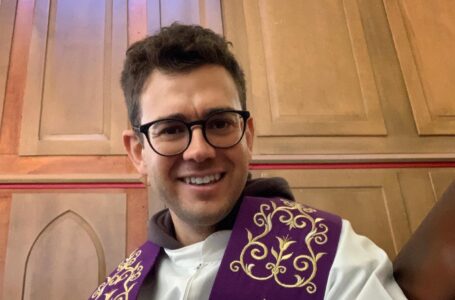
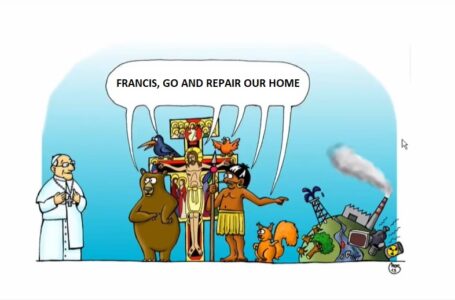
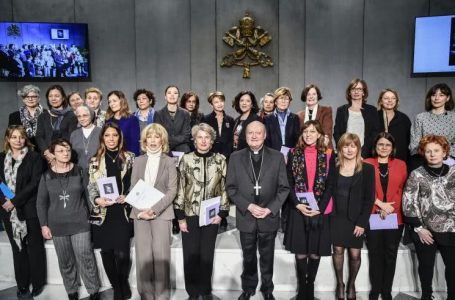


3 Comments
Hello. Im a humanitarian. Part of a large network of spiritually awakened humanitarians. Soon we will receive grants to change the world through a system that will eliminate poverty and homelessness. There are 6000 patents to be released at that time. One of which is medical. A technology called “medbeds”. It requires a spiritually awakened doctor to operate. My quest is to locate such people. Search “medbed” to see what im talking about. If you are interested please contact me.
Hello. Im a humanitarian and part of a large group of other humanitarians. Soon we will be released and through our service we will begin to eliminate hunger and poverty
At that time 6000 new patents will be released. One of which is medical. The device will forever change medicine. However it requires a spiritually awakened doctor to operate it. You can see what it is by clicking on the link below. If you are interested please comtact me.
https://en.m.wikipedia.org/wiki/Medbed
Hello. Im a humanitarian and part of a large group of other spiritually awakened humanitarians. Im looking for awakened doctors to operate these machines. Please contact me soon and ill explain further
https://en.m.wikipedia.org/wiki/Medbed